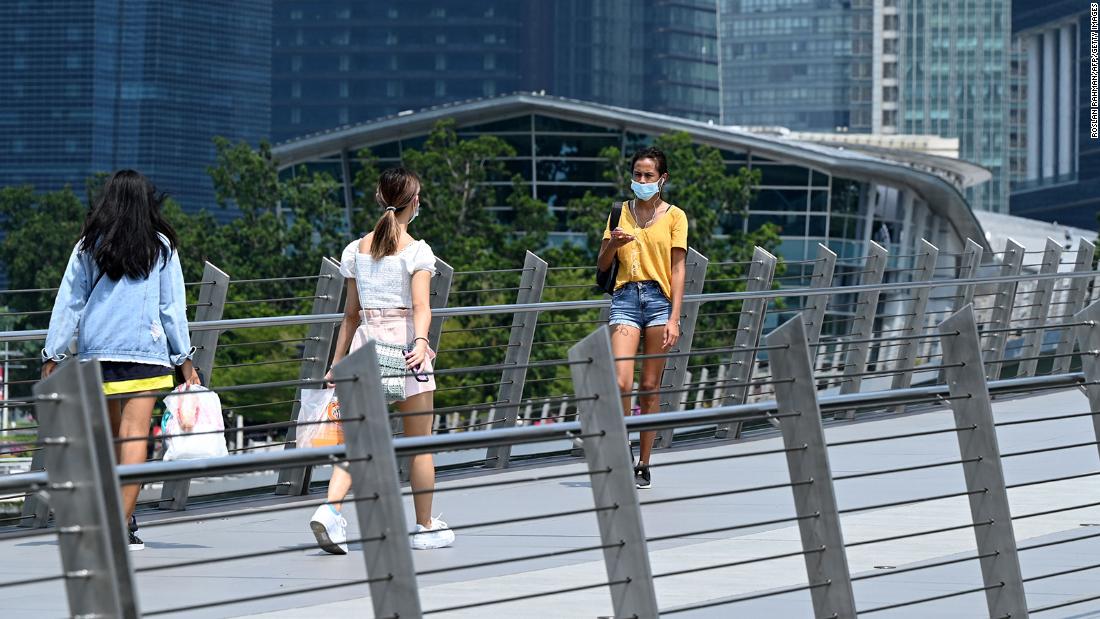Singapore wants to stop counting Covid cases. It could be a model for other countries
But this “zero transmission” model, which requires stringent, often punishing quarantine measures, will be almost impossible to maintain as new variants spread, and long term is simply not sustainable, the task force members claim. Instead, they say living with Covid can be done.
“We can turn the pandemic into something much less threatening, like influenza, hand, foot and mouth disease, or chickenpox, and get on with our lives.”
It’s a bold plan that could become a template for other countries looking to return to normal life and resume travel and tourism — and offer hope for frustrated residents eager to get their lives back on track after 18 months of pandemic restrictions.
How they’ll do it
The key for a lighter approach to the pandemic? High vaccination rates.
Singapore is on track for two-thirds of its population to have received their first vaccine dose by early July, and aims to fully vaccinate that figure by August 9.
“Vaccines are highly effective in reducing the risk of infection as well as transmission. Even if you are infected, vaccines will help prevent severe Covid-19 symptoms,” the ministers said.
As more people get vaccinated, the way Singapore monitors daily Covid-19 infection numbers will change. Following a path similar to how it tracks influenza infections, Singapore will monitor those who fall seriously sick or how many are in intensive care units. Infected people will be allowed to recover at home.
“We will worry less about the health care system being overwhelmed,” they said.
With new, potentially more contagious variants posing a concern around the world, the minsters said booster shots may be needed in the future and suggested a “multi-year vaccination program” be established.
While testing and surveillance will still be needed, they propose conducting tests in specific scenarios such as ahead of large social events, or when traveling back from abroad, rather than to track and quarantine close contacts.
To do this, the ministers say faster and easier methods of testing will be rolled out as PCR tests take too long to provide results. Other methods “in the pipeline” include breathalysers that take about one to two minutes to produce results.
In time, more treatments will become available for Covid-19. Already, the ministers point to therapeutics that are effective in treating the critically ill, and quicken recovery, as well as reducing severity of illness and deaths.
They also say citizens will be urged to practice “social responsibility” such as good hygiene and staying away from crowds when feeling unwell to reduce transmission rates.
“With vaccination, testing, treatment and social responsibility, it may mean that in the near future, when someone gets Covid-19, our response can be very different from now,” the ministers said.
Other countries remain cautious
It managed to contain earlier outbreaks, including a peak of cases in April last year. In May, a small cluster of cases was connected to Changi Airport employees, prompting tighter curbs.
Its new approach is a departure from other places that have been successful at managing the pandemic but have comparatively low vaccination rates and have recently reimposed tougher restrictions.
New Zealand said it was considering making masks compulsory at high alert levels and halted a quarantine-free travel bubble with neighboring Australia following an outbreak of the Delta variant.
CNN’s Pauline Lockwood contributed reporting.
![]()


